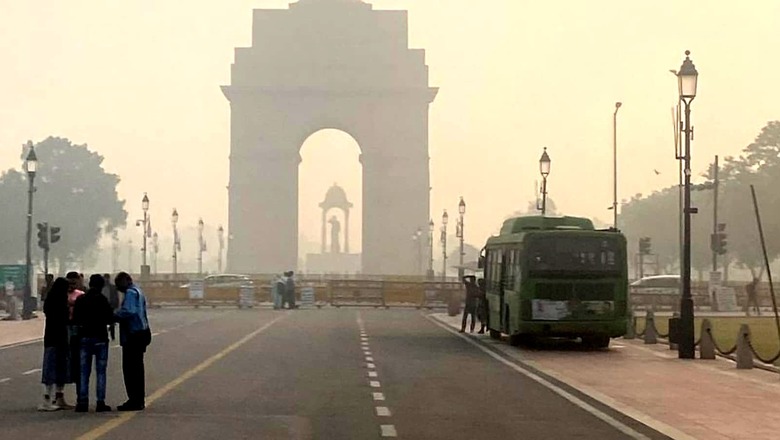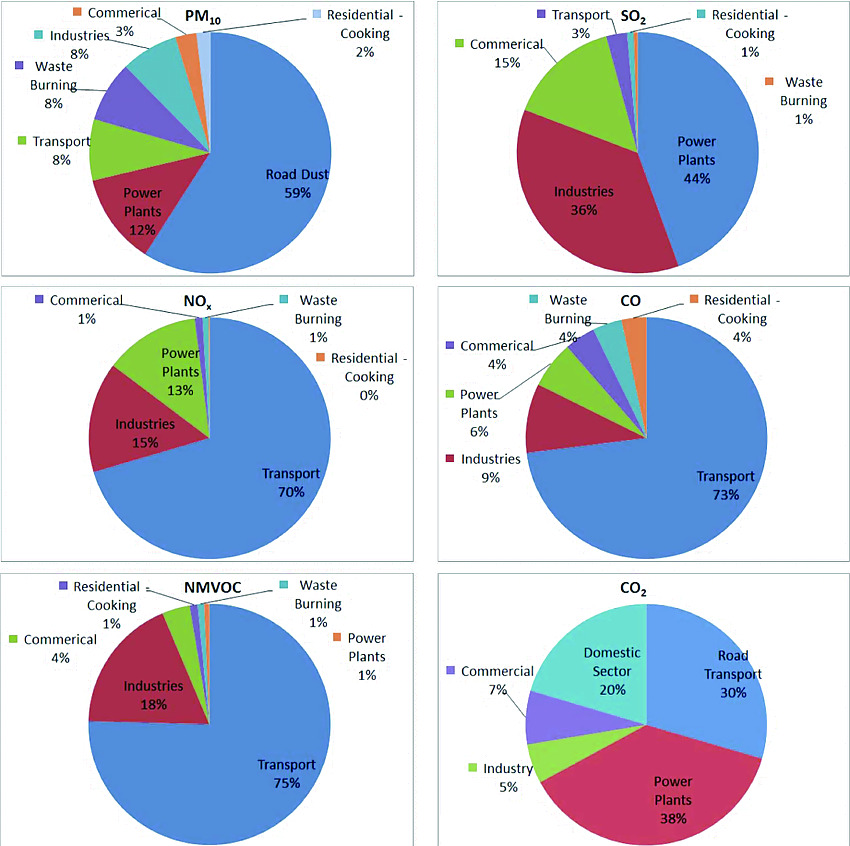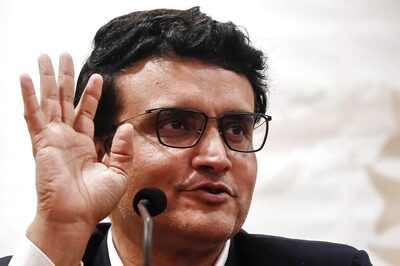
views
If Delhi was a being like a superorganism, populated by sometimes sentient beings whose behaviour, decision and acts determined their survival, it could be safely said that this superorganism is programmed to commit suicide. In simple terms, Delhi wants to commit suicide as it refuses to do or change anything to prevent itself from suffocating on polluted air.
While the city and its surrounding northern areas may be asphyxiating and suffocating slowly, it refuses to change its behaviour to save itself from this slow death. Moreover, Delhi’s behaviour is not representative of only itself, it is an aspirational city and signifies what the country thinks and does. People in smaller cities follow what citizens in Delhi do, even state politicians and policymakers look up to what their counterparts in Delhi are doing.

The innate Punjabi culture of the city refuses to delink their egos with their cars; they do not want to change ownership or use of cars. For illustrating the contribution of vehicular traffic on the city, do look at the accompanying chart in the article. The city refuses to delink the size of the ego with the size of their cars. It refuses to recognise that the larger the car, less is the efficiency and more it contributes to the pollution. This refusal to change is a sign of its ability to commit suicide, kill itself voluntarily. The Japanese had a word for slow suicide — ‘seppuku’ or ‘harakiri’ depending upon the circumstance in which it is conducted. We now need a word for Delhiites’ ability to commit mass suicide too.
The power dynamics of Delhi do not end with people; it permeates every part of the governance structure too. National policies are made in Delhi too and one would assume that policymakers would be breathing the same air as the rest of the city unless they have all decided to take the winter off to travel to other states and holiday locations; even then they would be breathing the air for the rest of the year too. But the laws for internal combustion engines are all created in Delhi, the laws for what building zones are built are all created in Delhi, and all the lobbies supporting the old dynamics of this structure also reside in Delhi.
The largest auto company in the country has a vice-like grip on every policy that emanates on internal combustion engines (ICE) and steadfastly refuses to change its strategy to electric. There are several companies that do not want to give up their pipeline of SUVs, fuel guzzlers, as it would create a temporary crash in their bottomline for a few quarters. Nobody, among the whole auto industry, wants to be smart enough and lead the change in a responsible manner. Till the industry and policymakers do not nudge mass behaviour change, it is unlikely that the individual residents of Delhi will change on their own. There are SUV-maker CEOs who are active social media users but nobody ever questions them about the role of their companies in driving this mass suicides in cities.
Every single ICE company wants to delay, prevent and lobby against the new EV makers. Y yes, their CXOs and owners want to lecture the world on humane behaviour and corporate governance, but they do not want to prevent mass suicides.
While currently electricity produced and consumed is not clean, as it is largely produced by coal, the irony is that the policy on supplying and generating power for large cities like Delhi or for that matter the rest of the country is also made in Delhi. Because Delhi, blinded by power, has decided to choke itself to death, does it mean that the rest of the country needs to die too being dependent on coal and fossil fuels.
Every year, come winter, the blame game starts with the farmers in Punjab and Haryana held responsible for everything that is wrong with Delhi’s air. But the accompanying chart shows you the contribution of pollutants. Stubble burning and farmers are conveniently pointed out as a problem as they do not live in the city so are responsible for all the pollutants in the air. They are responsible but not as much as Delhi itself is for its pollution. How can Delhi expect strangers to change their behaviour when the city itself does not want to make any effort?
Moreover, the policy solutions are there and they do not involve giving incentives to farmers. But unfortunately the real policymakers do not want to build those solutions. They rather build solutions that give money to farmers as that will allow graphs, leakage and new power systems to be created. The solution lies in asking all Combines makers that cut paddy to realign their machines in such a manner that no stubble is left on the ground and penalise the machine manufacturers, the owners of these Combines, which leave the stubble on the ground.
Don’t solve the problem of mechanisation or automation by introducing another mechanical problem of seeders in the market. The problem of stubble does not happen when the crop is harvested or cut by manual labour, but Punjab is so enamored with mechanization that it does not want to look for simple solutions.
The solution is a multi-fold crop Combine Harvester that needs to be recognised as vehicles by the Road Transport Authority. Their drivers need to be licensed like any other commercial vehicle. As they are contributing to pollution, their front-end cutters need to be aligned lower to cut the stubble closer to ground and not just the top end. If cars can be checked for pollution, Combines can also be checked and corrected. For this, the Ministry of Surface and Road Transportation will have to step in, and yes, this ministry is also based in Delhi. The cost of pollution has to be properly assigned if behaviour change has to be changed. Good behaviour that reduces pollution has to be rewarded.
The mandate of the Surface Transport Ministry should not be just to build roads at the cost of human lives. And yes, more roads are part of the pollution problem and create more cars per road which is actually perpetuating ownership of cars.
While everybody in and around Delhi suffers even while a slow suicide is happening, the change at COP27 showed is difficult, slow and deadly. What Delhi does today, the rest of the country will follow tomorrow. If Delhi can change its mind on car ownership, the rest of the country can too. Delhi needs to start accepting its own contribution to pollution rather than passing the buck to farmers.
K Yatish Rajawat is a public policy researcher at Centre for Innovation in Public Policy 011 an initiative of YR Foundation for Innovative Policy Research. www.cipp.in, feedback at [email protected]. The views expressed in this article are those of the author and do not represent the stand of this publication.
Read all the Latest Opinions here


















Comments
0 comment